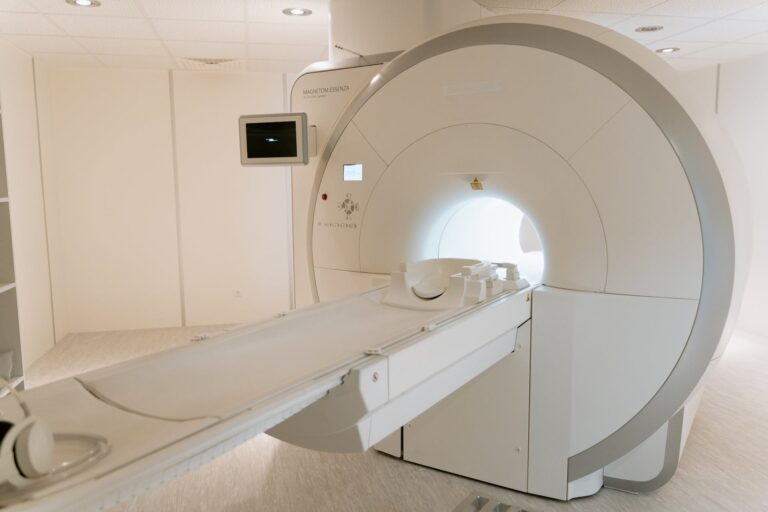Table of Contents

Table of Contents
The heart is one of the most important organs of the human body. That’s why you must get it routinely checked to ensure it’s in tip-top shape! If you’re gearing up for a heart CT scan in Singapore, you’re in the right place. In this article, I’ll help you navigate the process and be ready for this significant step in your healthcare journey. Let’s get started and simplify the process of getting ready for your heart CT scan!
Understanding the Purpose of a Heart CT Scan
A heart CT scan is a vital diagnostic tool that provides unmatched insights into the complex functioning of the heart in the context of cardiovascular health. These scans are specifically designed to be precise; they use cutting-edge imaging technology to examine the coronary arteries, revealing possible obstructions and offering a thorough evaluation of cardiac function.
The World Health Organization has revealed that 17.9 million deaths worldwide are linked to cardiovascular diseases (CVDs), which is an alarming statistic. The entire health burden of Singapore is significantly influenced by the prevalence of heart disorders. Notably, heart CT scans in Singapore have become essential in tackling these issues since they provide an accurate diagnostic method for resolving the difficulties presented by cardiovascular diseases.
A cardiac CT scan is more than just a diagnostic tool; it’s a first line of defense against conditions related to the heart along with cardiac screenings. Through the early detection of arterial abnormalities, these scans enable medical practitioners to take fast action, which may reduce the likelihood of serious cardiac events.
Physical and Mental Preparations for a Heart CT Scan in Singapore
It is crucial to make sure you are mentally and physically ready for a heart CT scan. According to recent research, patients who follow certain recommendations and the necessary fasting before the scan have better scan outcomes. A noteworthy statistic indicates that a higher percentage of successful scans is correlated with thorough physical preparation.
In addition to the physical preparation, mental readiness is essential. According to research, those who practice relaxation techniques before the procedure report feeling less anxious, which may help the scanning process go more smoothly. Comprehending the role of the Heart CT Scan in the diagnosis and monitoring of heart problems contributes to mental readiness and promotes a good attitude toward this essential component of healthcare.
Navigating the Logistics: Scheduling and Insurance
A smooth heart CT scan experience in Singapore requires navigating the scheduling logistics and comprehending insurance constraints. Here’s a quick reference:
- Effective Scheduling – Make quick contact with your healthcare practitioner to arrange for a Heart CT scan.
- Understand Your Insurance Coverage – Before the scan, confirm the specifics of your coverage with your insurance company.
- Records and prerequisites – Make sure you have all the paperwork required for the scan.
- Reminding Appointments – Set reminders and confirm your appointment to reduce scheduling problems.
You can streamline your scheduling and insurance procedure and guarantee a hassle-free Heart CT scan in Singapore by effectively managing these logistical challenges.
The Risks and Benefits of a Heart CT Scan
Understanding the potential dangers and benefits of a Heart CT scan is essential for making educated decisions. Here is a quick overview:
Benefits:
- Heart CT scans aid in the early detection of heart problems, allowing for timely interventions.
- Preventive Insight: Regular preventive scans are associated with a lower risk of major cardiovascular events.
Risks:
- Radiation Exposure: There is a small danger of radiation exposure during the scan.
- According to research, the advantages of early diagnosis exceed the minor hazards associated with radiation exposure during Heart CT scans.
Patient-Specific Considerations:
- Individual Health Profile: The risks and advantages may differ depending on the individual’s health.
- Statistically, personalized approaches that take into account individual health parameters improve the overall effectiveness of heart CT scans.
A balanced viewpoint is ensured by being aware of the nuances of a heart CT scan in Singapore. This enables you to make knowledgeable decisions about your cardiac health. This clarity encourages proactive decision-making for the management and protection of your heart’s overall health.
Post-Scan Guidance: Interpreting Findings and Providing Aftercare
Following a heart CT scan in Singapore, it’s critical to schedule follow-up care and interpret results. Here’s a quick reference:
Reviewing the Results:
- Collaborate with your medical professional to fully comprehend and analyze the findings of the heart CT scan.
Follow-Up Consultations
- Arrange a follow-up session to go over the results, possible courses of treatment, and lifestyle modifications.
Lifestyle Modifications:
- Adopt any suggested lifestyle modifications as soon as possible, such as diet plans or workout regimens.
Adherence to Medication:
- If you are provided medication, take it exactly as directed by your doctor.
- According to statistics, people who take their medications as prescribed have better control over cardiovascular risk factors.
Following these comprehensive post-scan recommendations will help you to actively participate in a continuum of care, promoting long-lasting heart health and vitality for your overall well-being!
You’re Ready!
As you prepare for a heart CT scan in Singapore, you’re taking the first steps toward preventive heart care. This guide has simplified the process while underlining the importance of this diagnostic stage in Singapore’s healthcare system. Now that you’ve learned about purpose, logistics, and post-scan considerations, you’re ready to embark on a smooth trip to cardiovascular health.
If you need help with your heart CT scan scheduling and appointment, feel free to give us a call at +65 6235 5300 or send us an email to get in touch with our recommended heart health expert.
Written by: Dr Michael MacDonald MB ChB, BSc (Hons), MRCP (UK), MD (Research), FESC (Europe). Dr MacDonald was trained in the UK and is a senior Consultant Cardiologist. Updated 20 August 2023

